Just Stay on the Path
More from Dancing with Life, by Phillip Moffitt:
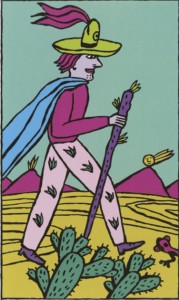 “If you continue to practice, the day will come when you realize that the only way life makes any sense with its endless changing cycle of gain and loss, pain and pleasure, is to view it as practice.
“If you continue to practice, the day will come when you realize that the only way life makes any sense with its endless changing cycle of gain and loss, pain and pleasure, is to view it as practice.
“Treating the Eightfold Path as integral practice transforms your everyday life….Skillful living becomes your measure of success, instead of how often you get what you want.
“This is a much better way to view your life! You are more relaxed, flexible, and you even experience more enjoyment. Some of your worldly goals will fall away or diminish in importance, but many will remain, although they are constantly changing.
“The radical difference is that your inner attitude shifts and how you manifest moment by moment as you go about attaining your worldly goals is dramatically different. Your experience of life itself is changed.”
(image from: Kitty Kahane Tarot)
Talk, Talk, Talk
In Chapter 19 of Dancing with Life, Phillip Moffitt reflects on the Eightfold Path, which “is not a list of what to do if you want to become a good person. Rather, it is a matrix of behavior, understanding, and practice for finding peace of mind and meaning in your life.”
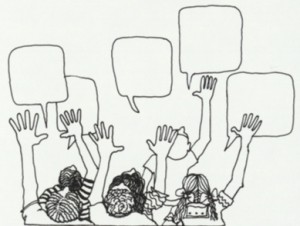 One of these eight “folds” is Right Speech, “which involves saying what is not only true and useful but also timely…”
One of these eight “folds” is Right Speech, “which involves saying what is not only true and useful but also timely…”
“This may sound simple to you, but just wait until you actually try practicing right speech!
“You will discover that much of the time you spend talking serves little or no purpose for you or others. It is simply your brain discharging the pressure you feel through casual, fairly random utterances or running commentary on what you are currently experiencing.
“You quickly discover that speech actually drains you of energy and often creates situations that then demand more of your attention.
“Or you many discover that much of your speech is just a space filler to avoid silence or for the purpose of being entraining when it is not really very interesting to you or the other person.”
Uh oh.
(image from: Creative Whack Pack, by Roger von Oech)
How to Dance
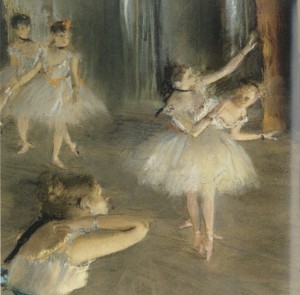 We had a great discussion at the Dancing with Life KM group last night. We’ve just started reading the last section of the book, which focuses on the Fourth Noble Truth: the Way Leading to the End of Suffering. This is where we look at the Buddha’s guide for purifying the mind: the Noble Eightfold Path, which is the training in ethical behavior (sila), mindfulness and concentration (samadhi) and wisdom (panna).
We had a great discussion at the Dancing with Life KM group last night. We’ve just started reading the last section of the book, which focuses on the Fourth Noble Truth: the Way Leading to the End of Suffering. This is where we look at the Buddha’s guide for purifying the mind: the Noble Eightfold Path, which is the training in ethical behavior (sila), mindfulness and concentration (samadhi) and wisdom (panna).
“As you have seen through practicing mindfulness, your thoughts, words, and actions have consequences; they condition future moments in your life that will create either suffering or nonsuffering.
“For this reason….you cultivate ethical behavior (sila) so that your mind is not disturbed by guilt and denial.
“You develop mindfulness and concentration (samadhi) both in meditation and life so that your mind is steady and awake during all your daily activities so that you are present to make choices that do not create dukkha (suffering).
“And finally, you cultivate wisdom (panna) through meditation, observation, and reflection so that you develop the discernment to know what brings happiness and what causes suffering. All three–sila, samadhi, and panna–act together to purify the mind.”
I have to admit that “purifying the mind” is not what I thought I was getting into when I started meditation. “Purifying” sounds painful! It sounds “puritanical” and conjures up all kinds of abusive messages about being “dirty” and “sinful.”
But that’s not what this is about.
“Purification of the mind brings the steadiness and the clarity that allows insight to arise. Both purification and insight are necessary for genuine liberation.
“Purification practice without insight and compassion leads to fundamentalism, a fixed view about right and wrong. It lends itself to superstition, to condemnation of others, and to imposing your will on others.
“Likewise, insight without purification can result in nihilism or hedonism, self-serving ignorance, and lack of accountability such that any behavior can be justified or rationalized.
“Even when you have profound insights they cannot be integrated into your life if your mind is unpurified. You are unable to move to a new level of consciousness, and you continue to cause suffering for yourself and others…
“By contrast, the act of skillfully dancing with life through the Noble Eightfold Path brings about the precursors moments of well-being and freedom that move you forward to full cessation [freedom from suffering].”
(image from: The Rehearsal Onstage (detail), by Edgar Degas)
Think About It
Continuing from Friday’s post on Training in Compassion by poet and Zen priest Norman Fischer:
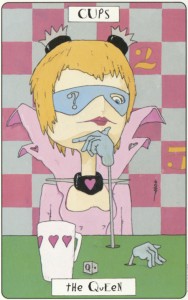 Another way to Train in the Preliminaries is to deeply and systematically contemplate a set of four traditional reflections. Fischer writes, “If you really take these seriously, if you really think about them long enough and hard enough to see how true they really are, it will change your outlook on life, and you will have found the motivation to begin again.” The reflections are:
Another way to Train in the Preliminaries is to deeply and systematically contemplate a set of four traditional reflections. Fischer writes, “If you really take these seriously, if you really think about them long enough and hard enough to see how true they really are, it will change your outlook on life, and you will have found the motivation to begin again.” The reflections are:
The rarity and preciousness of human life.
“Your living body is a fortunate, rare, and precious gift, and your human mind–consciousness risen to the point where there can be identity and value and thought and beauty and autonomous choice–is dear beyond compare.”
The inevitability of death.
“Most of us believe we don’t have to worry about this…because death comes in old ago, and since we are not now so old, it’s not a problem for us. But death doesn’t come only in old age, it comes at any age, and nobody knows when. And even if it were to come in old age, old age comes much more quickly than you thought it would: you were young, you blinked your eyes, thirty or forty years flew by, and now you are no longer young….This is a serious problem, and it’s a problem now, not later.”
The awesome and indelible power of our actions.
“In Buddhism this is called karma, which is not mystical or fatalistic. Karma simply means that each of our actions produces a result. And this means every action, both large and small. All of our thoughts, words, and deeds have consequences, and we may never know the measure of these consequences though they are extensive and powerful. In other words, every moment of our lives…..we have been affecting the world in some subtle yet real way; every moment, we have been participating in creating the world that now exists for ourselves and others.”
The inescapability of suffering.
“Although we don’t like to think about ti, it seems that sorrow and suffering are inevitable in any human life, even a happy one. There’s the suffering of loss, of disappointment, of disrespect; the suffering of physical pain, illness, old age; the suffering of broken relationships, of wanting something badly and not being able to have it, or not wanting something and being stuck with it….These things are part of life. No one can avoid suffering.”
The point of contemplating these four reflections is that they will cause us to “appreciate the seriousness of our human condition and to recognize that we have to live as seriously as we possibly can in response to the gift and the problem that is our life.”
(image from: Phantasmagoric Theater Tarot)
Start Now
I’ve discovered a terrific new book by poet and Zen priest, Norman Fischer. It’s called Training in Compassion: Zen Teachings on the Practice of Lojong. Basically, he’s taken the 59 “slogans” used for reflection in the Tibetan Lojong practice and given them a contemporary, cross-traditional rendering that I find quite refreshing.
The first slogan is: Train in the Preliminaries. He describes three ways to understand and practice with this slogan, including the fundamental direction to:
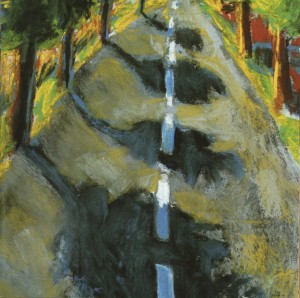 Start a meditation practice, a daily practice if possible, and trust that sitting regularly with attention on your breathing and the feeling in your body will provide the spiritual inspiration and force necessary to set a new process in motion in your life.
Start a meditation practice, a daily practice if possible, and trust that sitting regularly with attention on your breathing and the feeling in your body will provide the spiritual inspiration and force necessary to set a new process in motion in your life.
He also gives very clear instructions for basic meditation practice, including this lovely summation:
Meditation is, fundamentally, sitting with the basic feeling of being alive. What is the basic feeling of being alive? Being conscious, embodied, and breathing. That is actually what it feels like to be alive. Every moment of your life, and all of your feelings, thoughts, and accomplishments, depend on this, but most of us hardly ever notice it. In meditation our task is just to be present with this and nothing else. Simply sitting aware of the feeling of being alive.
…Essentially, it is nothing more than sitting with an honest awareness of the process of your life. While such awareness may seem exactly like the self-consciousness we usually feel in daily living, meditation practice will show us that it is in fact subtly but crucially different in that is is nonjudgmental and all-inclusive awareness.
This nonjudgmental and all-inclusive awareness, promoted and developed by meditation practice but more than meditation practice, will help us eventually understand and put into practice the wisdom and flexibility to deal with the events of our lives, and with others.
(image from: A Whole World, by Couprie and Louchard)
Stage Three: Transparency
Continuing from Dancing with Life, by Phillip Moffitt:
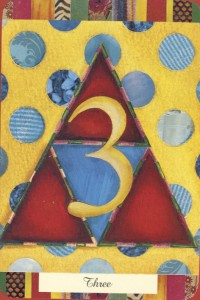 “The third stage of awareness, when your mind becomes transparent to ordinary reality, represents the total realization of cessation. At this stage, you are no longer dancing with life, for you are not organized in the ordinary human realm anymore. You are resting in the absolute and have become a direct part of the mystery that illuminates all of ordinary reality. You have achieved the deathless.
“The third stage of awareness, when your mind becomes transparent to ordinary reality, represents the total realization of cessation. At this stage, you are no longer dancing with life, for you are not organized in the ordinary human realm anymore. You are resting in the absolute and have become a direct part of the mystery that illuminates all of ordinary reality. You have achieved the deathless.
“When your mind has realized cessation and become transparent to ordinary reality, you experience all the moments of your existence as equal and meet them with tranquility and compassion. When a moment is pleasant, tender, or beautiful, you receive it as just that; your mind has no inclination to make it you or yours, and there is no clinging to it….Likewise, when a challenging physical or emotional situation arises, or you are confronted with pain and loss, your mind has no inclination to contract; it remains open, available, and calm…..You don’t object to how it is, and you don’t demand that the pain go away, or for life to be other than it is….You are free; you have experienced the sure heart’s release that the Buddha promised.
“…The full realized of cessation results in a fundamental change in consciousness to pure awareness and the realization of emptiness that transcends the ego personality. This core shift is beyond words because your being is essentially reorganized. You are transparent to the delusion of ordinary reality. You are in nibbana.
“…Although this stage of transparency is beyond your personality, the luminous mind shines forth through your personality. Because your mind has awakened and become transparent to this pure awareness, it is now part of that great impersonal illuminating source of all life.”
Wow.
Stage Two: Transcending the Ego
More from Dancing with Life, by Phillip Moffitt:
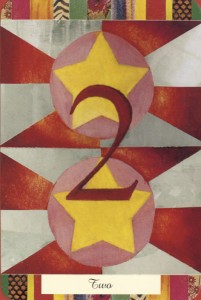 To reach the transcending-the-ego stage [of awareness], you continue to practice, but now you have your transformed ego as a foundation, so you create less suffering, encounter less inner resistance, and have more faith…
To reach the transcending-the-ego stage [of awareness], you continue to practice, but now you have your transformed ego as a foundation, so you create less suffering, encounter less inner resistance, and have more faith…
At this stage of liberation you cease to primarily identify with your ego sense of self. You are not suddenly a perfect person; you still have your quirks and shortcomings, but you are not longer thinking, speaking, or acting in ways that are likely to cause harm to yourself or others.
…The particulars of how your transcendence manifests do not really matter. What matters is that you have transcended ego. Therefore, in relating to life, you spontaneously and consistently respond to what is called for, and you do so from a sense of being part of the mystery of the unfolding of your life rather than from your ego. You have not become someone new–you have become more your true nature.
…Many people believe that transcending the ego is the highest human potential. At this stage of being, you cease to identify with the duality that arises in your mind, although there is a “knower” (the subject) and “that which is known” (the object). You are still dancing with life, but the dance is not longer a struggle; it is effortless and natural because you have stopped clinging.
Tomorrow: Stage Three (when your mind becomes transparent to ordinary reality)
Stage One: Transforming the Ego
The “Dancing with Life” KM Group meets tonight and we’ll be discussing the Three Stages of Realization: Transformation, Transcendence, and Transparency described by Phillip Moffitt (in Dancing with Life pages 197-206 in the hardback edition).
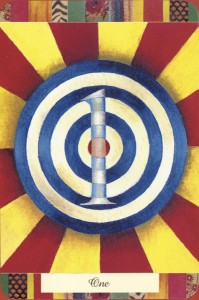 Here’s what Phillip has to say about Stage One:
Here’s what Phillip has to say about Stage One:
At first your inner changes simply mean that you are becoming psychologically or emotionally healthier….But you intuitively know your journey is about something larger than just creating a healthier ego; therefore, you stick to your practice. What are at first just shifts in your thinking and behavior gradually and cumulatively amount to substantive changes in how your mind is organized, and you enter a new state of development.
You realize that your suffering is the result of the way you are, not the way the world is. You know you know this is true, not because someone told you or you read it in a book, but because you feel it in your body. This direct knowing transforms you within your ego structure…
Once you reach the ego transformation stage of awareness, you feel a sense of ease with life and selflessness that makes you more available to others….You continue to be organized around your ego, but the ego’s identity is transformed, therefore, much of its focus is on wholesome behavior and serving others….
At this stage of spiritual maturity, cessation means you have ceased being self-referencing. You are much less tormented by greed, ill will, and delusion. Despite whatever flaws you may have at present, you are capable of achieving genuine ego transformation…..
If you are exceptionally motivated, you realize at some point that you could spend your entire life exploring and developing within the transformed ego stage and you would still not be free. Therefore, you do not lose the thread of your inspiration. You stay connected to your deeper calling–your heart’s full liberation.
So you persistently practice noting clinging and nonclinging and witnessing arising and passing of phenomena. You can imagine that transcending the ego might be possible. You are not clinging to a desire for transcendence, it is a natural progression; the mind and heart spontaneously move in this direction.
Which takes you to Stage Two. More on that tomorrow.
How Am I Doing?
 Last night our KM group began discussing Chapter 17 of Dancing with Life, by Phillip Moffitt. We talked about what we’re trying to “accomplish” in our practice, what we thought it might be like to experience “cessation of suffering,” and how to tell if we’re making any “progress” toward that end. Here’s what Phillip has to say (from page 196 of the hardback edition):
Last night our KM group began discussing Chapter 17 of Dancing with Life, by Phillip Moffitt. We talked about what we’re trying to “accomplish” in our practice, what we thought it might be like to experience “cessation of suffering,” and how to tell if we’re making any “progress” toward that end. Here’s what Phillip has to say (from page 196 of the hardback edition):
“….do not measure your progress by the number or amplitude of dramatic moments [in meditation] you have had, but rather periodically ask yourself:
Is my practice stronger?
Do I suffer less?
Do I cause less suffering?
Do I have a clearer, calmer perspective in my daily life?
“What matters is that you make your life your practice. Making your practice the core of your life is cessation in the sense that you cease pursuing the illusionary and cease trying to find well-being and meaning in what can never yield freedom.
“For the most part you will not know where you are on the path to cessation, only that you are indeed on the path….
“The hints you will encounter in your practice fall into three categories:
Those moments when you know you are suffering less because of your practice
Those moments when you feel the wholeness or sweetness that comes with choosing to dance with life in this manner
Those moments when you know your mind is free.”
(image from: Housewives Tarot)
Back at the Marketplace
More from Dancing with Life, by Phillip Moffitt:
 A clear example of this understanding [that Finding Liberation from Suffering is Not the Same as Abandoning the Word] can be found in the Zen Oxherding pictures by Kakuan. This series of 10 drawings begins with a picture of a man having a sense that something is missing in his life, which is symbolized by the ox. Next he sees the footprint of the ox, which awakens inspiration in him to become his true nature. From there he searches until he finds the ox, develops a relationship to it, and then discovers its emptiness, i.e., cessation.
A clear example of this understanding [that Finding Liberation from Suffering is Not the Same as Abandoning the Word] can be found in the Zen Oxherding pictures by Kakuan. This series of 10 drawings begins with a picture of a man having a sense that something is missing in his life, which is symbolized by the ox. Next he sees the footprint of the ox, which awakens inspiration in him to become his true nature. From there he searches until he finds the ox, develops a relationship to it, and then discovers its emptiness, i.e., cessation.
But the series doesn’t end with emptiness. In the last picture the man returns to the marketplace with a beatific smile on his face, and the text says that he ‘returns to the marketplace showing no sign of holiness, but if he touches the dead trees they come into full bloom.’
When you are around someone who has deep experience in cessation, it is like the description of the ox herder returning to the marketplace. Such a person resides in a feeling of freedom from attachment; they know that they know, thus they are able to freely participate in life. You feel assured, relaxed, even a little blessed being in their presence, as though the insight they have realized brings out the best in you, too.
It’s true. This is exactly how I have felt when I’ve been around Phillip, as well as Mirabai and many, many of the other teachers at Spirit Rock and IMS.
(image by: Laurie Smith, from Local Flavors: Cooking and Eating from America’s Farmers’ Markets)
